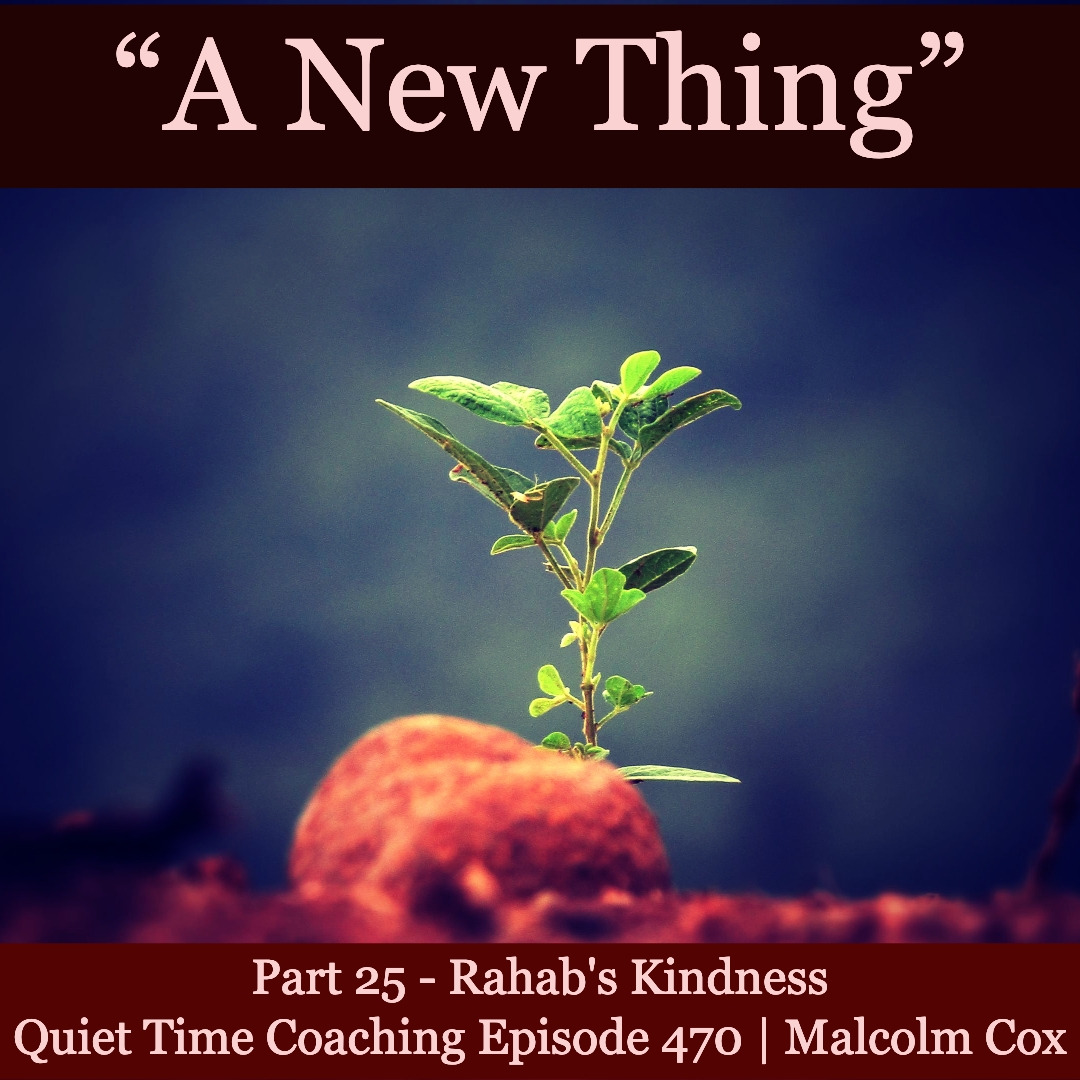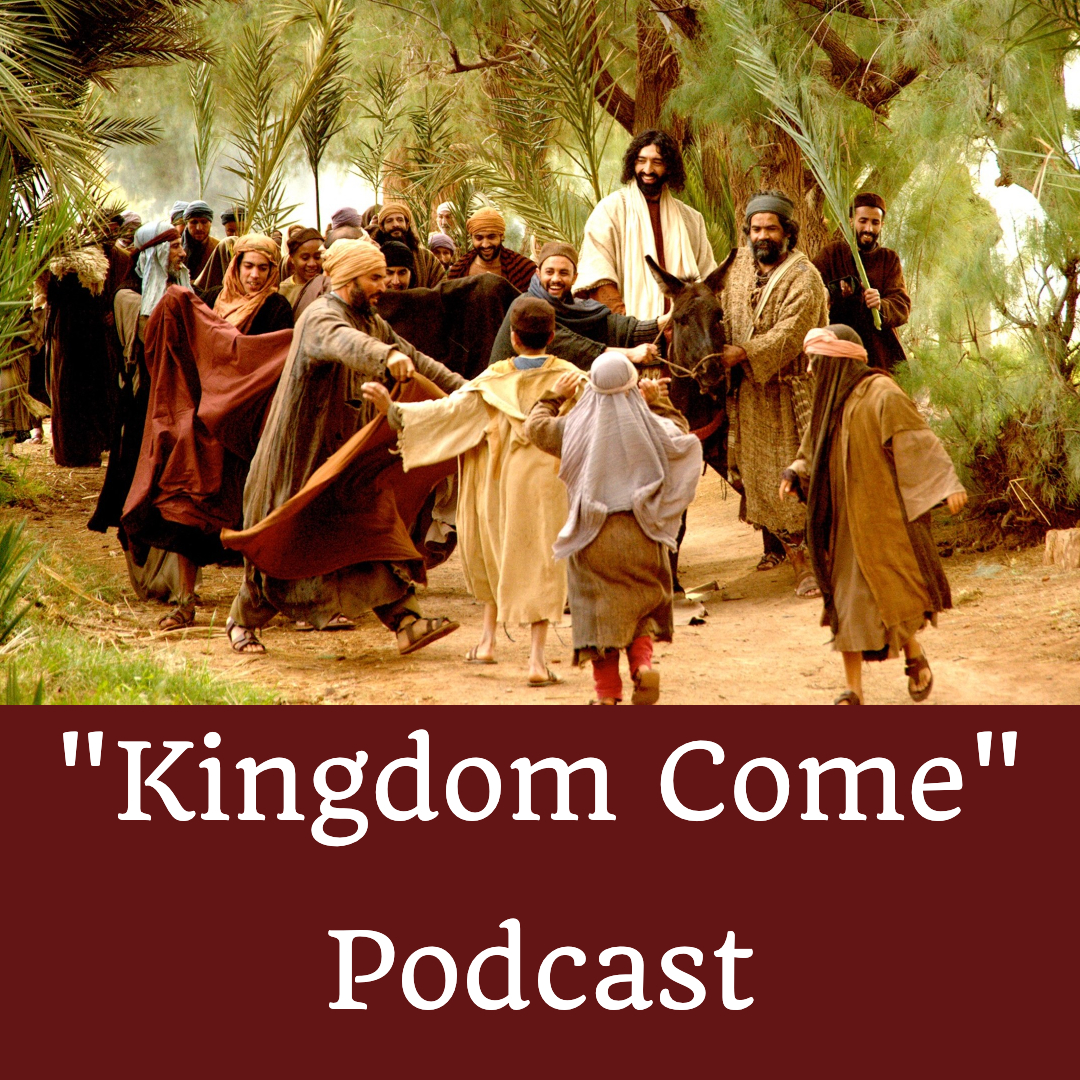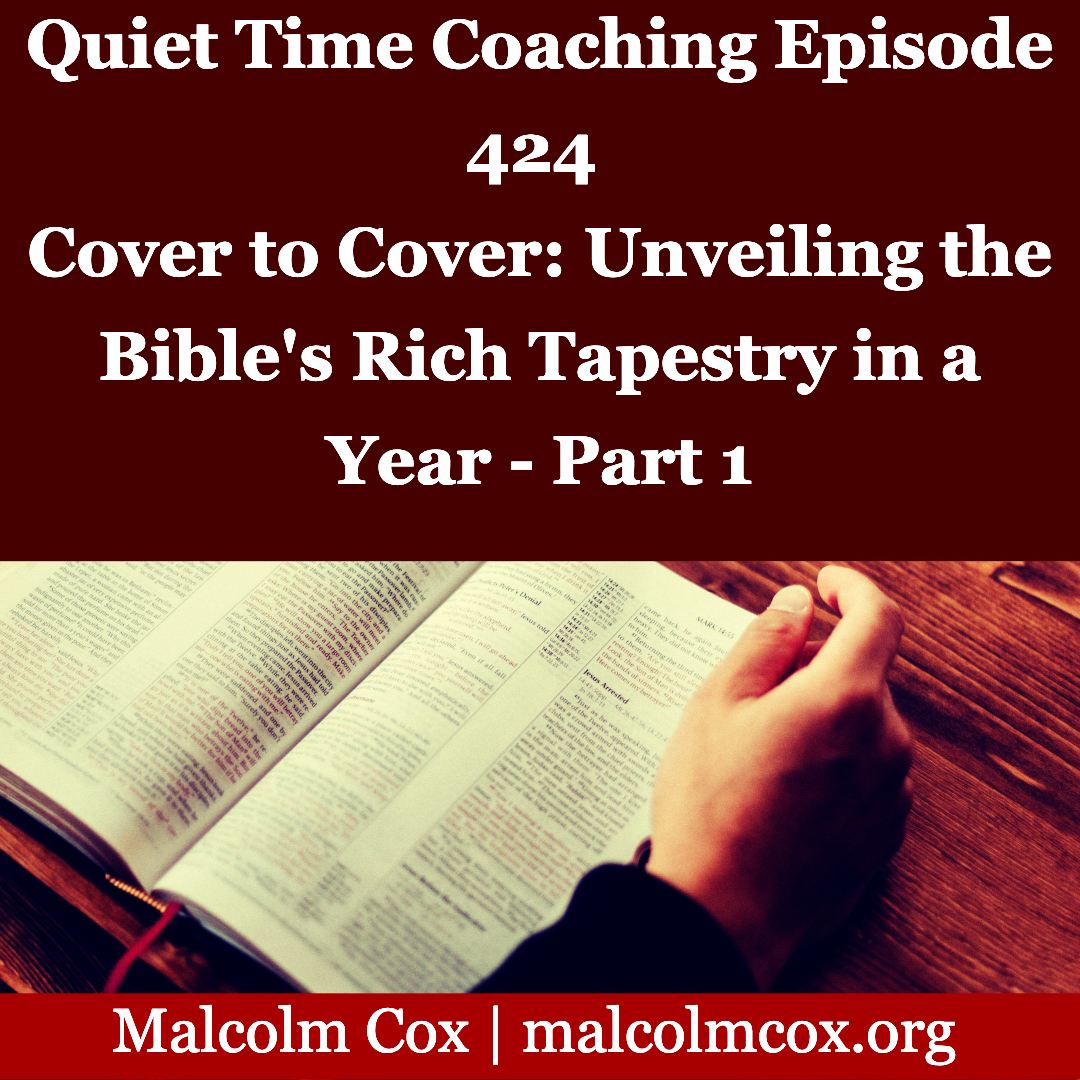
Quiet Time Coaching Episode 470 | New Thing Series — Part 25 | “Rahab’s Kindness” | Malcolm Cox
Introduction
A new thing! I’m Malcolm Cox. Welcome to your daily devotional podcast anchored in Isaiah 43:19: ‘See, I am doing a new thing! Now it springs up; do you not perceive it? I am making a way in the wilderness and streams in the wasteland.’
We are currently looking at God doing a new thing in the life of Rahab. Today we explore Rahab’s kindness.
“As soon as we heard it, our hearts melted, and there was no courage left in any of us because of you. The LORD your God is indeed God in heaven above and on earth below. Now then, since I have dealt kindly with you, swear to me by the LORD that you in turn will deal kindly with my family.” (Joshua 2:11-12 NRSV)
Rahab’s kindness is a new thing
- Rahab has “dealt kindly” with the spies. In return she asks them to ‘deal kindly’ with her family
- The word ‘kindly’ is a very rich word. It is the Hebrew word ‘hesed’.
- ‘hesed’ is a covenant word expressing a commitment to faithfulness
- God uses the word of himself when speaking to Moses
“And he passed in front of Moses, proclaiming, “The LORD, the LORD, the compassionate and gracious God, slow to anger, abounding in love and faithfulness, maintaining love (‘hesed’) to thousands, and forgiving wickedness, rebellion and sin. Yet he does not leave the guilty unpunished; he punishes the children and their children for the sin of the parents to the third and fourth generation.”” (Exodus 34:6-7 NIV11)
- God is saying, ‘I am the hesed God. You can count on me to keep my covenant.’
- Ḥesed is found nearly 250 times in the OT and is hard to translate. Usually a composite of English words is used: grace, mercy, compassion, steadfast love and so on. Bernard of Clairvaux described it as the “love that will not let us go.”
- Note in the Exodus passage how his love is lavished on thousands while the punishments for sin only last to the third or fourth generation.
- These are the first things God says to Moses from within the cloud, as he prepares to give the law to Moses the second time. The very giving of the law a second time is an act of ḥesed love.
- hesed is not so much about a state, but a relationship. It makes sense in the context of family and community bonds.
For Reflection
Rahab has demonstrated hesed (kindness) and wants hesed to be shown to her family. She wants in on the family of God who she trusts to show her hesed because that is at the very core of what God’s family is all about. The same is true for us in the New Testament:
“For we ourselves were once foolish, disobedient, led astray, slaves to various passions and pleasures, passing our days in malice and envy, despicable, hating one another. But when the goodness and loving kindness of God our Saviour appeared, he saved us, not because of any works of righteousness that we had done, but according to his mercy, through the water of rebirth and renewal by the Holy Spirit. This Spirit he poured out on us richly through Jesus Christ our Saviour, so that, having been justified by his grace, we might become heirs according to the hope of eternal life.” (Titus 3:3-7 NRSV)
Why not take some time today to reflect on some of the ways God has been lavishly kind to you in your Christian life so far?
Conclusion
I hope you find your heart, your life, your congregation and your world inspired by God doing a new thing. Until tomorrow, take care, and God bless.
Please add your comments on this week’s topic. We learn best when we learn in community.
Do you have a question about teaching the Bible? Is it theological, technical, practical? Send me your questions or suggestions. Here’s the email: malcolm@malcolmcox.org.
If you’d like a copy of my free eBook on spiritual disciplines, “How God grows His people”, sign up at my website: http://www.malcolmcox.org.
Please pass the link on, subscribe, leave a review.
“Carpe Diem” Kevin MacLeod (incompetech.com)
Licensed under Creative Commons: By Attribution 4.0 License
http://creativecommons.org/licenses/by/4.0/

